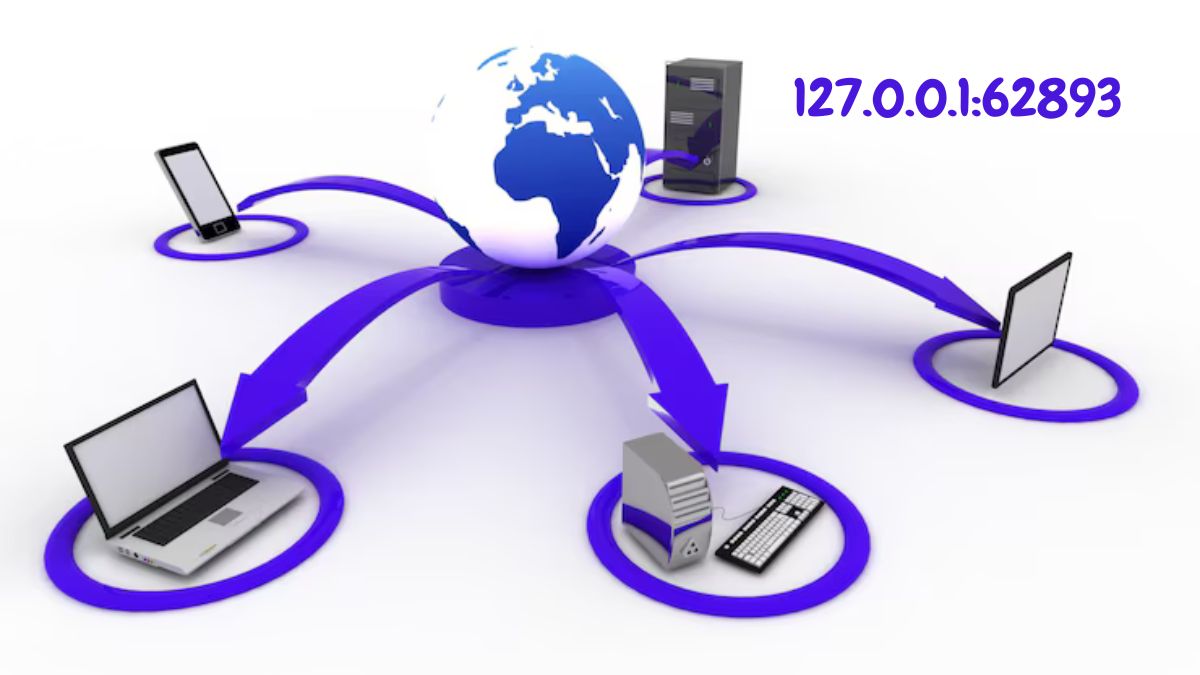Welcome to the mysterious world of 127.0.0.1:62893! This seemingly cryptic combination of numbers holds a key to unlocking a realm that is crucial in the realm of web development and networking. Let’s embark on a journey to demystify the purpose and function of this enigmatic address.
Understanding IP Addresses and Ports
When it comes to navigating the vast digital landscape, understanding IP addresses and ports is key. An Internet Protocol (IP) address acts as a unique identifier for devices connected to a network. Think of it as a virtual mailing address that ensures data reaches its intended destination accurately and efficiently.
Ports, on the other hand, are like entry points on a device where data can be sent and received. They help organize incoming and outgoing information by assigning specific numbers to different types of traffic. Just like how each door in your house leads to a different room, ports direct data packets to their designated applications or services on a device.
Together, IP addresses and ports form the backbone of internet communication, enabling seamless interactions between computers, servers, and other devices. So next time you browse the web or send an email, remember that these digital coordinates are working behind the scenes to make it all possible.
The Importance of Localhost in Web Development
Localhost, often represented by the IP address 127.0.0.1, is like a hidden gem in the realm of web development – a digital playground where developers can experiment and test without fear of breaking anything in the live environment.
When working on a website or application, having a local server set up on your machine allows you to preview changes instantly before deploying them to the public domain. This not only saves time but also minimizes errors that could potentially impact user experience.
The beauty of localhost lies in its ability to mimic a live server environment right on your computer. It enables developers to test functionality, troubleshoot bugs, and fine-tune designs with ease, ensuring a seamless user experience when the project goes live.
In essence, localhost serves as a safe haven for developers to innovate and iterate freely until they are satisfied with their creation before sharing it with the world.
Common Uses of 127.0.0.1:62893
Have you ever wondered about the common uses of 127.0.0.1:62893? This specific IP address and port combination has various practical applications in the realm of web development and networking.
Developers often utilize 127.0.0.1:62893 for testing purposes, creating a simulated environment to check how their websites or applications function locally before deploying them live on the internet.
Another common use is for debugging software issues by allowing developers to pinpoint and troubleshoot problems within their code directly on their own machines using localhost.
Furthermore, this unique address can also be used for setting up proxy servers or accessing services running on specific ports that require local connections.
Understanding the different ways in which 127.0.0.1:62893 can be employed showcases its versatility and importance in modern technology landscapes.
Troubleshooting Issues with 127.0.0.1:62893
Encountering issues with 127.0.0.1:62893 can be perplexing for many web developers and tech enthusiasts alike. When troubleshooting, start by checking if the port is being blocked by any firewall settings on your system. Adjusting these settings could potentially resolve connectivity problems.
Another common issue may stem from conflicts with other applications using the same port number or network congestion. In such cases, changing the port number or closing unnecessary programs could alleviate the problem.
Additionally, ensuring that the service you are trying to access through 127.0.0.1:62893 is running smoothly and without errors is essential in troubleshooting difficulties related to this specific IP address and port combination.
By systematically addressing these potential hurdles one by one, you’ll likely uncover the root cause of any issues interfering with your connection to 127.0.0.1:62893 effectively restoring functionality to your web development environment as intended.
Security Concerns and Precautions
When it comes to using 127.0.0.1:62893 for development purposes, it’s essential to be aware of potential security concerns that may arise. One primary concern is the risk of exposing sensitive information or services unintentionally while testing on localhost.
To mitigate these risks, always ensure that your local environment is secure by keeping software and applications updated with the latest patches and fixes. Additionally, consider restricting access to ports like 127.0.0.1:62893 when not in use to prevent unauthorized access.
Another precaution to take is implementing strong password protection for any services running on localhost to prevent unauthorized users from gaining access. Regularly review logs and monitor network activity to detect any suspicious behavior promptly.
By staying vigilant and proactive about security measures, you can minimize the chances of encountering vulnerabilities or breaches when utilizing 127.0.0…
Conclusion
Understanding the purpose and function of 127.0.0.1:62893 is essential for any web developer or IT enthusiast. This localhost IP address with a designated port provides a gateway to test and troubleshoot applications locally before deploying them live on the internet. By grasping the nuances of IP addresses, ports, and utilizing localhost effectively, you can streamline your development process and ensure smoother deployments. Remember to stay vigilant about security measures and always keep abreast of best practices to harness the full potential of 127.0.0.1:62893 in your projects.

